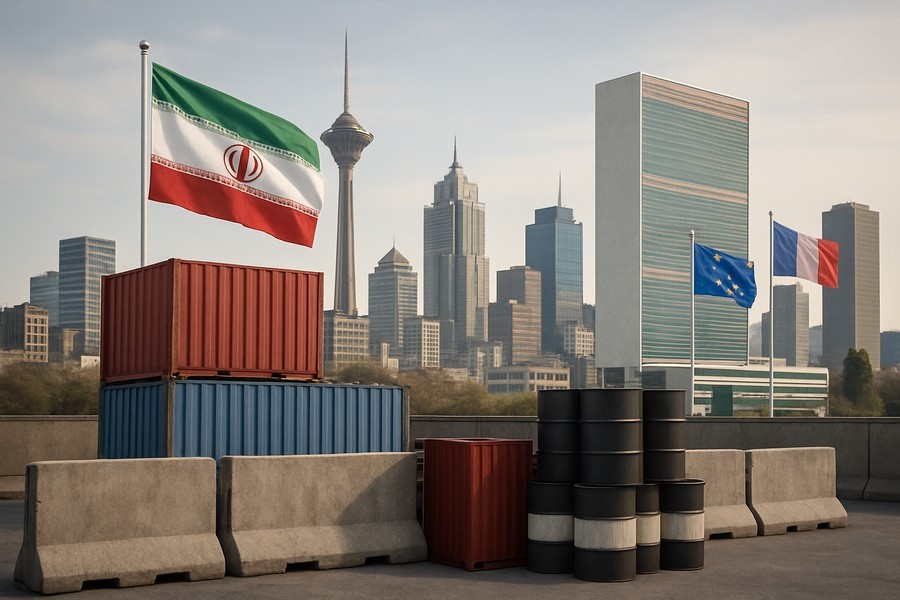
Iran Faces Renewed Global Sanctions Due to Alleged Nuclear Program Violations
Global economic and military sanctions against Iran, which were lifted about a decade ago, are set to return. This comes as a result of its supposed failure to comply with the agreed terms regarding its nuclear activities.
Previously, three European countries had communicated their concerns to an international body, alleging that Iran was not living up to its obligations. This set in motion a process that allowed Iran a 30-day grace period to diplomatically resolve the situation and avoid the sanctions. However, this seems to have been unsuccessful.
Worldwide Criticism and Opposition
Iran's leader, Masoud Pezeshkian, has expressed his strong disapproval of the sanctions, describing them as "unfair, unjust, and illegal". Despite last-minute efforts by Russia and China to postpone the sanctions by half a year, their proposal was not successful, securing only four votes in a council of 15 members.
It appears the sanctions will be enforced on Sunday, right after midnight.
Escalating Tensions and Actions
Iran has reportedly increased its restricted nuclear activities since a certain North American country withdrew from the agreement in 2016. The leader of this country, Donald Trump, had criticized the agreement, known as the Joint Comprehensive Plan of Action (JCPOA), which was negotiated under his predecessor.
After several of Iran's nuclear and military sites were attacked by the U.S. and Israel in June, Iran denied international inspectors access to its nuclear facilities. This incident occurred amid stalled indirect talks between Iran and the U.S. aiming to negotiate a new nuclear agreement.
Iran's Stance
President Pezeshkian reassured the international community that Iran has no intention of creating a nuclear bomb. He made these remarks to a group of journalists, accusing foreign powers of seeking a shallow excuse to ignite conflict in the region. Despite previous threats, he insisted that Iran has no plans to withdraw from the Non-Proliferation Treaty.
However, he noted that Tehran requires guarantees that its nuclear facilities will not be attacked by Israel before it can resume its nuclear enrichment program as normal.
Sanctions and Their Implications
The impending sanctions will place significant pressures on Iran, including:
- An embargo on arms
- A ban on uranium enrichment
- A ban on activities related to ballistic missiles capable of delivering nuclear weapons
- A freeze of assets and a travel ban on Iranian individuals and entities
- Permission for countries to inspect Iran Air and Iran Shipping Lines cargo
Unless a solution is found soon, the international sanctions will be followed by additional sanctions from the European Union.
Failed Diplomatic Efforts
European foreign ministers had attempted to prevent the sanctions. They urged Iran to resume talks with the U.S., cooperate with the international nuclear watchdog, and provide an explanation for its enriched uranium stockpile.
Iran's Foreign Minister, during a meeting at an international forum, accused the U.S. of betraying diplomacy and the European countries of burying it. Calling the negotiations with the U.S. a "dead end", he further stressed the difficult position Iran finds itself in.
Looking Forward
As part of the nuclear treaty, Iran is legally required to allow inspections. It has been in discussions with the international nuclear watchdog to find a way forward. However, the return of sanctions could jeopardize these talks.
Despite Iran's insistence that its nuclear program is only for peaceful, civilian purposes, Western powers and the international nuclear watchdog remain skeptical.
In a related development, Russia recently inked a deal with Iran to construct four nuclear power reactors in southern Iran.
